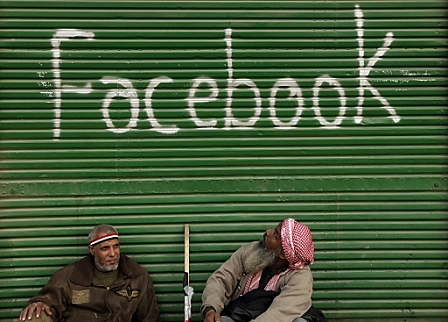Erstellt am: 3. 6. 2011 - 19:01 Uhr
Social Networking: The Media Revolution
I must confess, it took me a long time to get into the idea of social networking. In the beginning, I kept getting invitations to join xyz network either from people I see every day anyway (so why do I need to see them online as well?) or people I hadn’t seen since my schooldays (and there’s probably a good reason for this).
It all seemed a rather time consuming exercise in exchanging information that either I had already, or I didn’t want in the first place. I thought it would be a fad that would last a few months or years, and then everyone would lose interest and go back to good old e-mail. I admit it, I was totally wrong. That’s when I needed a reality check.
As it turned out, I wasn’t just wrong about the potential of social networking, I was also wrong in thinking it was something new. As Lee Feldenstein, one of the fathers of the personal computer, recalls, the idea of an online social network originated in 1973, in a store called Leopold’s records, in San Francisco.
Dieses Element ist nicht mehr verfügbar
Of course, we’ve come a very long way indeed since the first network brought Californian music fans together, and social networks, Facebook and Twitter in particular, have become such a part of daily life that in some parts of the world there are more people using Facebook than reading newspapers. Zizi Papacharissi is a Professor of Communications at the University of Illinois. She says that while social networks are, in essence, social – they are also becoming the place where all areas of life come together.
Dieses Element ist nicht mehr verfügbar

EPA
Just like any other social gathering, social networks have become a hub of information, and just like any other social gathering, there is fact mixed up with rumour, half truth and opinion masquerading as fact, so it’s very difficult to know what to believe. While Facebook and Twitter may have been tools for democracy in movements like the Arab Spring, they have also been the sources of misinformation, whether intentionally or not. The social media have become such a massive source of information, that their size in itself has secured their market niche, but at the same time ensured the survival of the conventional media, according to Axel Maireder of Vienna University's Institut Publizistik & Kommunikationswissenschaft
Dieses Element ist nicht mehr verfügbar
Facebook, for now, at least, seems to have won the battle for global dominance. It has around 764 million users, which means that if it were a country, it would be the third largest in the world, beaten by only India and China. It’s projected that it will overtake them within the next 5 years. What bothers some commentators, such as FM4’s Dave Dempsey, is that there is no sign of any serious competition to Facebook emerging anytime soon.
Dieses Element ist nicht mehr verfügbar

EPA
Social networks are the subject of this Saturday’s Reality Check Special. You can hear the programme at 12 noon on Saturday, June 4th or subscribe for the podcast here.


